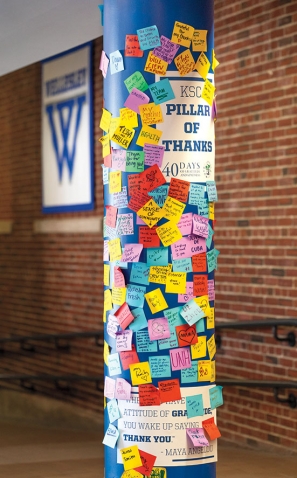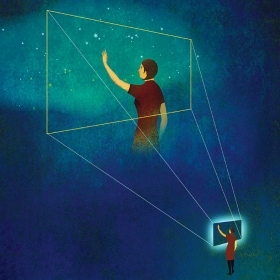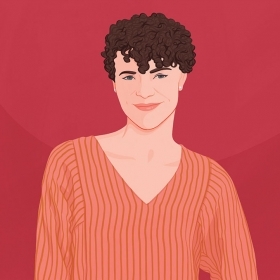Photo by Lisa Abitbol
As the first snowdrops and bits of green popped up around campus this year, Wellesley’s Office of Religious and Spiritual Life had turning a new leaf on kindness in mind. The result was this year’s “40 Days of Gratitude & Kindness” program, a series of events across campus that ran from late February until the College went to remote learning.
“We just talked about what different ways we can start a conversation on campus around kindness, around gratitude, around some of the basic things that I think are important in our human relationships and interactions,” says Dean of Religious and Spiritual Life Jackie Marquez of the chaplains’ conversations leading up to the initiative.
This year’s trial program revolved around a calendar that listed events and suggested activities over the 40 days. Community partners participated in their own ways, such as the Department of Physical Education, Recreation, and Athletics sponsoring a Pillar of Gratitude, where students posted sticky notes expressing thanks for things ranging from “Wellesley field hockey and the new turf and lights” to “caramel” and “good health and a support system of friends.” Career Education also joined in, introducing a bulletin board where community members could thank anyone who’d helped them along in their time at the College. Student posts included names of professors and mentors, even inspirational alumnae—one note thanked Ophelia Dahl CE/DS ’94 “for her advocacy and commitment to making a difference in the world.”
Marquez said that one of the events she was most excited for students and faculty to experience was an adaptation of Buddhist Chaplain John Bailes’ weekly guided meditations. During the 40 days, all were loving-kindness meditations, a type “focused on this idea of giving love and kindness to ourselves and sending love and kindness out into the world,” she says.
On such a busy campus, the idea of practicing kindness and gratitude in daily life might not take root overnight. Envisioning new programs and pausing to consider how pre-existing ones can better emphasize kindness and gratitude are both beneficial approaches. It’s up to the community to grow from there.








We ask that those who engage in Wellesley magazine's online community act with honesty, integrity, and respect. (Remember the honor code, alums?) We reserve the right to remove comments by impersonators or comments that are not civil and relevant to the subject at hand. By posting here, you are permitting Wellesley magazine to edit and republish your comment in all media. Please remember that all posts are public.